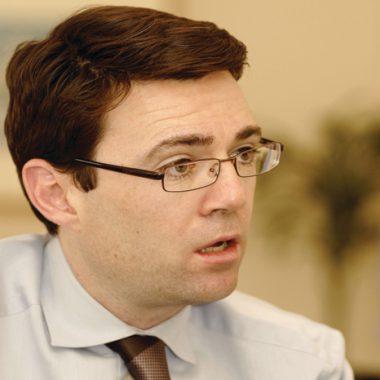Labour to remove commissioning powers from GPs for vulnerable patients

Exclusive CCG leaders will lose the responsibility for planning the care of the most vulnerable patients if the Labour party wins the next general election, in a move that GP leaders have said will lead to further fragmentation of the health service.
Under plans signed off by the party’s policy-making body, health and wellbeing boards – run by local authorities – would be responsible for formulating plans for commissioning services for ‘people with long-term conditions, disability and frailty’, which CCGs will have a ‘duty’ to abide by.
But GP leaders warned that such plans would lead to further fragmentation of the health service, and would risk more services being removed from GPs.
The proposals are set to become Labour policy, and they represent a watered-down version of ideas originally mooted this year by shadow health secretary Andy Burnham to hand more commissioning powers to health and wellbeing boards, which are made up of representatives from CCGs and local authorities.
They were revealed in a summary of a policy forum held over the weekend, which exists to ‘shape’ Labour’s policies for approval at the annual party conference and an election manifesto that will be drawn up nearer to next year’s general election.
A post on the website of the Social Health Association, which has since been removed, said: ‘Health and Wellbeing Boards will have a central role in the commissioning process for people with long-term conditions, disability and frailty – people whose care is often most fragmented and who are heavy users of health and care services. The Health and Wellbeing Board would be responsible for creating a local collective commissioning plan for this group of people – within a nationally defined outcome framework for the development of whole-person care – with a duty of CCGs and Local Authorities to enact the collective commissioning plan.
‘In caring for those with complex needs, where local partners in communities want to move to a single budget for health and social care, or Joint Ventures, and have the capability to do so, the legislative framework should allow this to happen.’
The Labour party has confirmed to Pulse that this was agreed by its policy forum.
The policy forum also decided Labour has to break the trend of falling GP numbers by promoting general practice as a career choice and investing in primary care in deprived areas.
Related stories
The real cost of the 48-hour target
Labour Party puts forward new Bill to end NHS ‘privatisation’
GPs’ independent status may change under Labour, says Burnham
It also added its strong support for walk-in primary care centres, many of which have been closed down in recent years.
The summary said: ‘GP recruitment will be a priority for Labour, including through promoting general practice as a career choice, supporting GP returners back to work and encouraging recruitment in under-doctored areas.’
It added: ‘NHS walk-in centres have played a vital and successful role in enabling people to access care and relieving pressure on A&E.’
As previously announced, Labour wants to reintroduce a 48-hour GP appointment target, to be funded by money saved in commissioner budgets from not having to negotiate the competition rules that Labour intends to scrap.
According to the summary from the forum, this would see removal of the competition rules in the Health and Social Care Act and also Monitor stripped of its responsibility to ‘promote competition’ in the NHS.
But it is the new plans for CCG powers to be removed that has caused the most controversy, and GPC chair Dr Richard Vautrey said there were problems in handing health budgets to local authorities.
He said: ‘It is good that they have moved away from the idea of effectively making CCGs subcommittees of health and wellbeing boards – that would have been a mistake. But a key concern at the moment is fragmentation of services, and local authorities have an even greater tendency to tender out services to be provided by third parties. We would want reassurance that that would not be the case.’
But he said the focus on GP recruitment was to be welcomed.
‘The focus on GP recruitment is essential because the NHS depends on this being addressed. We need to see any future Government talk up general practice far more so that young doctors want to become GPs and do not feel like they will be in the firing line of hostile media and hostile Government.’
Dr Vautrey added: ‘While some walk-in centres can be helpful, actually you see far better outcomes by investing in existing GP practices, supporting them to expand their services to patients. This is better, again, than fragmenting services.’
Speaking to the policy forum, Labour leader Ed Miliband said: ‘David Cameron said the NHS was safe in his hands. He has betrayed the trust of the British people. And think what would happen to the NHS if he were to get back to power. It will be up to the next Labour Government, as it always is, to save our NHS from these Tories. Stop the Tory privatisation.’









